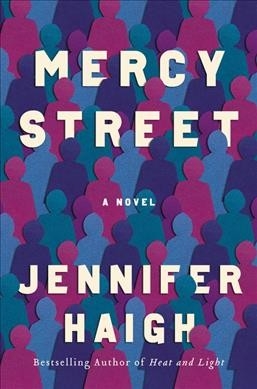
With her latest book, Mercy Street (2022), novelist Jennifer Haigh explores the nuances of various lives that intersect due to their affiliation with, or antipathy toward, a women’s medical clinic in the heart of Boston. Located on Mercy Street, the clinic affords girls and women health care they might not otherwise have access to, even as anti-abortionist protestors gather outside the clinic every day, and anonymous threats flood in, through phone calls, letters, and the internet.
By focusing in part on Claudia, a counselor who has worked at the clinic for nearly ten years, listening to patients’ complicated and, all too often, heart-rending stories in order to help them decide what their best options might be, when they are pregnant or otherwise at risk due to their mental, emotional, and/or physical health, Haigh realizes in detail the stresses and challenges that come with working in such a context. As the protests outside intensify, and a troubling website surfaces on the Web, featuring photographs of clients and staff members entering the building, along with language that can only be described as hate speech, Claudia’s anxiety mounts. Readers then enter the point of view of her genial pot dealer, Timmy, and through him, the minds of two other characters, Timmy's acquaintance Anthony, a man broken in body and spirit, who lives most of his life online, and while there, chats with, and provides photographs for an anti-abortionist warrior, Vince, whose militant sights are set on Mercy Street.
Jennifer Haigh has created a fascinating quartet of characters in Mercy Street. As the plot's momentum builds, the diverse perspectives cast light on one of our culture’s most current controversies—today's headline news, in fact. If you gravitate toward realistic fiction that delves into timely social issues, then Mercy Street may be the novel for you.